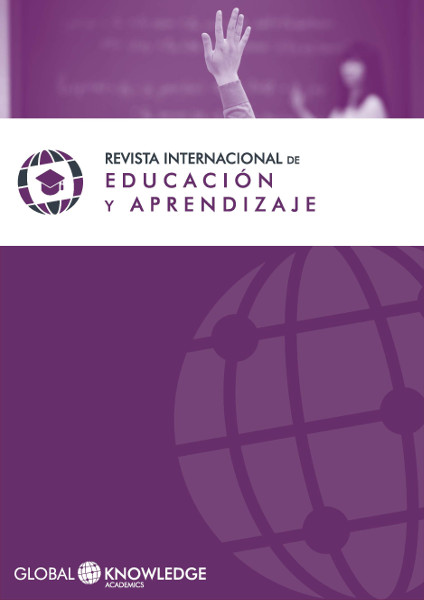Videos tutoriales; una alternativa de estudio para alumnos: nivel de autoaprendizaje y motivaciones
DOI:
https://doi.org/10.37467/gka-revedu.v5.1391Palabras clave:
aceptación tecnológica, motivaciones, educación, aprendizaje, tecnologías, modelo educativo, comunidad estudiantil, desarrollo íntegroResumen
La educación es un tema fundamental si queremos lograr un desarrollo íntegro. Este artículo tiene como objetivo indagar a través de estudios empíricos; los factores motivacionales que estimulan a los alumnosa utilizar herramientas tecnológicas como medio de aprendizaje, en conjunto con la influencia de las metodologías de enseñanza utilizadas por los docentes. De esta manera introducir la aceptación tecnológica en educación. La revolución tecnológica y el mayor acceso a internet han abierto nuevas plataformas como alternativas de educación ante las deficiencias del modelo educativo tradicional, basado en horarios delimitados y acotado a la guía de aprendizaje que el profesor imparta. Actualmente existen varias plataformas online de videos a las cuales puede acceder cualquier persona y compartir diversos contenidos, entre los cuales se encuentran los videos educacionales. Para identificar el impacto que tiene específicamente ésta plataforma en la educación se hace referencia al estudio realizado por Lee, D. Y., & Lehto, M. R. en el año 2013, el cual describe las determinantes que incentivan a utilizar esta modalidad de estudio en procedimientos de tareas y como método de aprendizaje. Estas observaciones representan una ventaja en la reducción de costos asociados a la educación y beneficios hacia la comunidad estudiantil. Los resultados del estudio señalan la necesidad de implementar nuevas metodologías y técnicas de enseñanza con el fin de canalizar las motivaciones del alumnado y lograr potenciar sus atributos y habilidades.
Descargas
Estadísticas globales ℹ️
|
2226
Visualizaciones
|
577
Descargas
|
|
2803
Total
|
|
Citas
Aguilar, M. G., Campos, S. R., & Batlle, P. F. (2012). El uso académico de las redes sociales en universitarios. Comunicar, 19(38), 131-138. DOI: https://doi.org/10.3916/C38-2012-03-04
Azucena, G, Fierro, S. y Landeros H. (2015). Elementos de la comunicación visual a considerar en el desarrollo de material didáctico digital. Volumen 2, Número 1, 2015, 17-25. DOI: https://doi.org/10.37467/gka-revedutech.v2.961
Bates, A. W. (1999). La tecnología en la enseñanza abierta y la educación a distancia. Trillas.
Brunner, J. J., Elacqua, G., Tillett, A., Bonnefoy, J., González, S., Pacheco, P., & Salazar, F. (2015). Guiar el mercado. Informe sobre la educación superior en Chile.
Burke, S. C., & Snyder, S. L. (2008). YouTube: an innovative learning resource for college health education courses. International Electronic Journal of Health Education, 11, 39-46.
Castillo, S. S. (2012). La adquisición de competencias mediante la autonomía en el proceso de aprendizaje autorregulado. Estudios sobre el mensaje periodísticos, Vol. 18 Pag. 850. DOI: https://doi.org/10.5209/rev_ESMP.2012.v18.40963
Choi, Á., & Calero, J. (2012). Rendimiento académico y titularidad de centro en España.
De Haro, J. J. (2010). Redes sociales para la educación. Ponencia Uso educativo de las.
Fermoso, P., & Fermoso, J. (1997). Manual de economía de la educación. Narcea Ediciones.
Lee, D. Y., & Lehto, M. R. (2013). User acceptance of YouTube for procedural learning: An extension of the Technology Acceptance Model. Computers & Education, 61, 193-208. DOI: https://doi.org/10.1016/j.compedu.2012.10.001
López, L. P. C. (2009). El cibersalón: Educación superior y YouTube. Chasqui. Revista Latinoamericana de Comunicación, (106).
Montico, S. (2004). La motivación en el aula universitaria: ¿una necesidad pedagógica? Ciencia, Docencia y Tecnología, 15(29), 105-112.
Müller P. y Vera N. (2015). Cambio de un sistema educativo de presencial a virtual: componente cognitivo y motivacional de los alumnos. Revista internacional de aprendizaje y cibersociedad. Vol. 19 Número 1. DOI: https://doi.org/10.37467/gka-revciber.v19.878
Odriozola, E. E., & de Corral Gargallo, P. (2010). Adicción a las nuevas tecnologías ya las redes sociales en jóvenes: un nuevo reto. Adicciones: Revista de socidrogalcohol, 22(2), 91-96. DOI: https://doi.org/10.20882/adicciones.196
Ortiz, R., Vargas, X. (2015). Revista Internacional de Pedagogía y Currículo, 2(1), 2015, pp.37-47.
Rubio Moraga, Á. L. (2003). Internet y Enseñanza: la educación virtual.
Scagnoli, N. I. (2005). Estrategias para motivar el aprendizaje colaborativo en cursos a distancia.
Terrón, F. J. M. (2011). Coaching educativo y académico: un nuevo modo de enseñar y aprender. Educación y Futuro: Revista de investigación aplicada y experiencias educativas, (24), 49-66.
Descargas
Publicado
Cómo citar
Número
Sección
Licencia
Los autores/as que publiquen en esta revista aceptan las siguientes condiciones:
- Los autores/as conservan los derechos de autor.
- Los autores/as ceden a la revista el derecho de la primera publicación. La revista también posee los derechos de edición.
- Todos los contenidos publicados se regulan mediante una Licencia Atribución/Reconocimiento-SinDerivados 4.0 Internacional. Acceda a la versión informativa y texto legal de la licencia. En virtud de ello, se permite a terceros utilizar lo publicado siempre que mencionen la autoría del trabajo y a la primera publicación en esta revista. Si transforma el material, no podrá distribuir el trabajo modificado.
- Los autores/as pueden realizar otros acuerdos contractuales independientes y adicionales para la distribución no exclusiva de la versión del artículo publicado en esta revista (p. ej., incluirlo en un repositorio institucional o publicarlo en un libro) siempre que indiquen claramente que el trabajo se publicó por primera vez en esta revista.
- Se permite y recomienda a los autores/as a publicar su trabajo en Internet (por ejemplo en páginas institucionales o personales), una vez publicado en la revista y citando a la misma ya que puede conducir a intercambios productivos y a una mayor y más rápida difusión del trabajo publicado (vea The Effect of Open Access).













